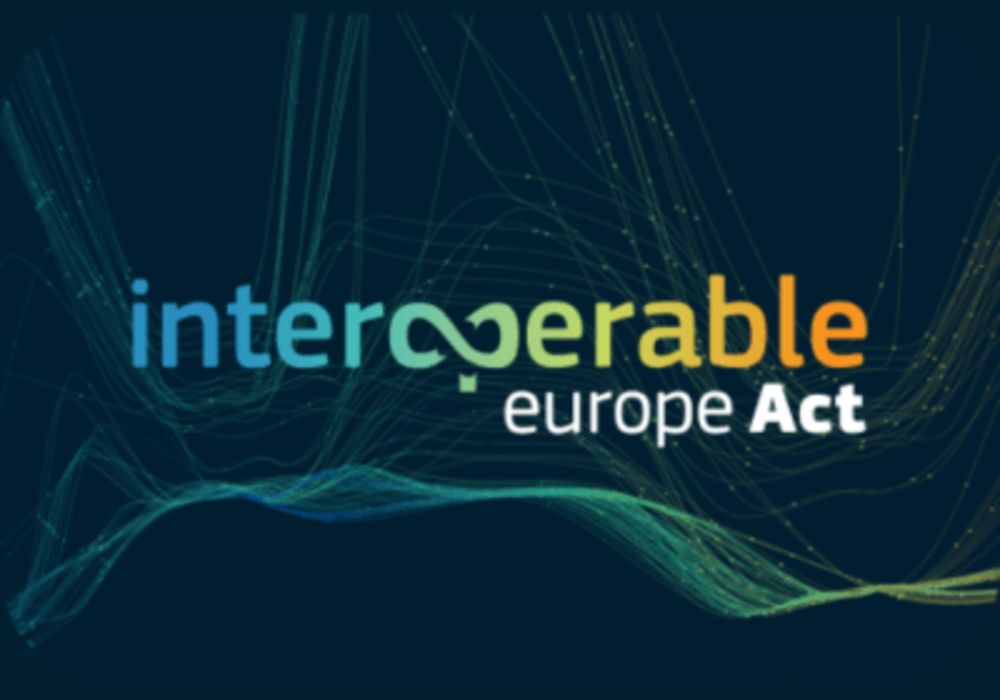The Interoperable Europe Act, which enters into force today, will facilitate cross-border data exchange and accelerate the digital transformation of the public sector. The Act is essential to reaching the objectives of the EU's Digital Decade, such as having 100% of key public services available online by 2030. Interoperability is a core feature of a functioning Digital Single Market and contributes to a more effective implementation of digital features of public policies, from justice to health to transport.
Citizens, businesses, and public administrations will benefit most of the new regulation when using interconnected digital public services that require cross-border exchange of data. Examples of such services include mutual recognition of academic diplomas or professional qualifications, exchanges of vehicle data for road safety, access to social security and health data, the exchange of information related to taxation, customs, public tender accreditation, digital driving licenses, commercial registers. According to the impact assessment, the Act is expected to save up to €5 billion on a yearly basis.
The Act will be implemented through a set of key measures:
- The setup of a multi-level cooperation framework bringing together Member State most senior digital government practitioners, as well as a broad community of civil society, experts, academics and local actors, to define a common interoperability agenda and an evolving ecosystem of common interoperability solutions. This framework will be steered by the Interoperable Europe Board and supported by the Interoperable Europe Community.
- The introduction of mandatory interoperability assessments to build “interoperable-by-design" public services. This will help public sector bodies to explore and, where appropriate, address cross-border interoperability aspects already at the design phase of new services or tools. The Commission will provide the necessary guidelines and support.
- The ‘Interoperable Europe Portal', a one-stop-shop to encourage the sharing and reuse of high quality and reliable interoperability solutions among public administrations.
- Strengthened innovation and policy support mechanisms, including training, regulatory sandboxes for policy experimentation, public-private GovTech and policy implementation support projects, to develop, test and scale up solutions.
The regulation applies to public sector bodies, including EU Institutions and bodies. The implementation of the interoperable Europe Act will be funded through the Digital Europe Programme (DIGITAL).
Next Steps
Following the timeline defined in the Regulation, most of the provisions will apply within 3 months from the date of entry into force.
Exceptionally:
- European Institutions, bodies and agencies and public sector bodies will run Interoperability assessments as of January 2025;
- Member States will designate national competent authorities 9 months after the date of entry into force of the Regulation, by January 2025.
Background
Public sector interoperability is the ability of administrations to cooperate and make public services function across borders, sectors and organisational boundaries. It plays a crucial role in designing safe data flows and avoiding the duplication of efforts in public services. In different crises over the past years, public sector interoperability allowed for better coordination among Member States, mobilisation of resources where they were most needed, and the fast formulation of joint solutions.
The Commission has been supporting interoperability between public administrations since the 1990s through the European Interoperability Framework (EIF), a series of action plans and funding programmes such as IDA, IDABC, ISA, ISA², and now DIGITAL. To assist Members States and European Institutions, bodies and agencies in implementation of the public sector interoperability policy, the Commission has developed a comprehensive set of tools and trainings, such as the EIF toolbox, the SEMIC Support Centre, the JoinUp platform and the Interoperable Europe Academy. In addition to these, the Commission has also created a GovTech Incubator initiative where governments come together to adopt the best solutions developed by startups and other governments across the EU.
Several evaluations of public sector interoperability policy pointed to shortcomings and called for action. Member States have also increasingly stressed the need to strengthen European interoperability cooperation through, among others, the ministerial declarations signed in 2017 in Tallinn and in 2020 in Berlin. Likewise, EU citizens participating in the Conference on the Future of Europe have voiced a demand for enhanced cross-border interoperability. The Interoperable Europe Act responds directly to these calls for action.
Source & Image Credit: European Commission



















